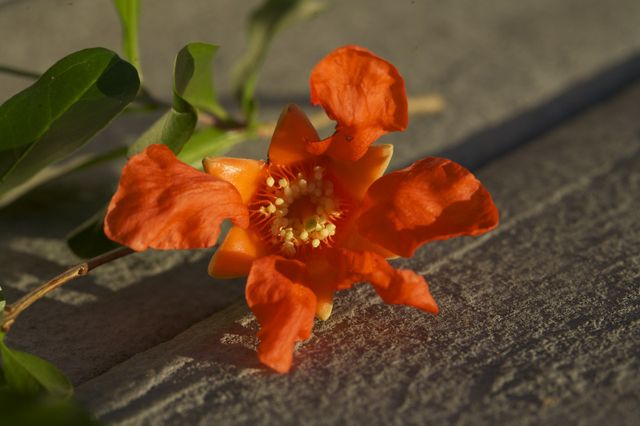 As Arizona’s Land Grant institution, the University of Arizona is charged with offering applied research and education that addresses solutions to Arizona’s needs. This practical focus led to major developments in Mining and Agriculture in the early years, and continued excellence in urban horticulture in later years through research, education and outreach. From the very beginning, trees and shrubs were planted, and studied creating an “oasis” of learning in desert horticulture. Throughout its history, UA faculty used the campus grounds as a test site for potential new agricultural commodities, introducing olives, citrus, and date trees, to name a few. Later, in response to population growth, urban development and concerns for resource conservation, faculty interests expanded to include arid-adapted landscape ornamentals that were also tested on the main campus grounds. As a result of this long-standing commitment, many of the trees on the main campus produce edible products.
As Arizona’s Land Grant institution, the University of Arizona is charged with offering applied research and education that addresses solutions to Arizona’s needs. This practical focus led to major developments in Mining and Agriculture in the early years, and continued excellence in urban horticulture in later years through research, education and outreach. From the very beginning, trees and shrubs were planted, and studied creating an “oasis” of learning in desert horticulture. Throughout its history, UA faculty used the campus grounds as a test site for potential new agricultural commodities, introducing olives, citrus, and date trees, to name a few. Later, in response to population growth, urban development and concerns for resource conservation, faculty interests expanded to include arid-adapted landscape ornamentals that were also tested on the main campus grounds. As a result of this long-standing commitment, many of the trees on the main campus produce edible products.
To promote sustainability, the Campus Arboretum directs conservation of resources through reduction of water, labor, and chemical inputs in landscape management. Further, we aim to maximize the benefits of campus trees by providing guidance on tree selection, preservation, and management to enhance longevity, tree structure, aesthetics and safety. Similarly, through recent efforts to support harvest of campus edibles, we’re capturing greater returns on our investment in the campus grounds. The Campus Arboretum works alongside Linking Edible Arizona Forests (LEAF) to get the community involved with planting, conserving, and using edible trees in Arizona. LEAF has many harvests throughout the year donating the edible proceeds to Iskashitaa Refugee Network and other organizations. As you walk through campus today, we hope you’ll appreciate the beauty as well as utility of this living example of urban sustainability research.
Given the tremendous interest and participation in the Edible Landscapes docent-guided campus tour, two undergraduate student from Nutrition Sciences (Alyssa Los) and Plant Sciences (Tracey Till) teamed up to create a new self-guided tour booklet. This resources allows many more people access to the valuable knowledge from the in-person tour and expands the content to include more health benefits, ethnobotanical uses, information on cultivating the plants, and detailed nutriional reports.

